Reverend John Delore


I met Reverend John Delore in the wings of a Lower East Side stage a year or so ago as he was preparing to play a show that promptly knocked my socks off. He stands at 6 feet 6 inches, a wide shouldered but soft-spoken Paul Bunyan, with piercing eyes, and lumberjack beard. Delore, a Wisconsin born poet and songwriter, brings his own flavor of Roots, Folk, and Country that defies genres. This man can deliver a song and turn a memorable phrase. He has soaked up the dirty streets of Manhattan’s downtown and America’s heartland equally. The Reverend is set to release a new album “Sweet Talk for Pretty Daughters” and was nice enough to grant us an interview. The release party info is available HERE. (Tuesday October 16th 7:45pm at The Delancey. Lower East Side)

Tell me the story of how you were ordained “Reverend”.
I wish it were a more interesting story. It was Halloween a few years back. I was dressed as a priest & carrying around a copy of “Tropic of Capricorn” disguised in a black leather bible cover. My friends were dressed up as dictators, so it was later in the evening when my friend Fidel Castro got in an argument with a guy dressed up as a bottle of tequila. My other friends, Kim Jong Il & Hugo Chavez, got in the mix, so the tequila bottle’s friends–who happened to be Spongebob Squarepants and Charlie Chaplin–came over. I came in as the peacemaker, poking everyone in the chest with Henry Miller & telling them they ought to be ashamed of themselves. The bottle of tequila said, “Take it easy there, Reverend.” It all ended peacefully. And the name stuck around.
What was the timeline for the production of your most recent album, “Sweet Talk for Pretty Daughters”?
Well, I’ve always got about a half dozen overlapping timelines, so it’s difficult to think about a single chronology. I put out “Ode to an American Urn” in 2009, toured the country in 2010 on a self-booked tour, then put out two albums in 2011 (“Little John the Conqueror” and “Songs From Church Avenue”). It was in between releasing “Little John” and recording “Church Avenue” that I went to a little lake town Wisconsin for the month of July to catch my breath, drink White Russians and cut my knuckles on a banjo. I was listening to a lot of Laurel Canyon stuff, and really got on a Gram Parsons kick. My brain started formulating the idea of a “cosmic country” record and before the month was over I had written three more or less complete songs, as well as a couple more fragments that I brought back to Brooklyn. I booked time at The Bunker Studio and got my friend Jason Finkel onboard as engineer and co-producer before all the songs were finished. We did one long rehearsal in April with the full band where we put up eight mics and recorded some demos. We went into the studio in June and recorded the full 11-song album in two days. It was six guys. Jay Frederick on drums, John Bettencourt on bass, Zac Clark on piano, Steve Lewis on electric guitar, Rich Hinman on pedal steel, and me on the acoustic and lead vocals. And Jason getting it all down in Protools.
I went back to Wisconsin again in July and spent the month doing some overdubs, recording some friends of mine singing harmonies. Finkel started mixing sometime in late August or early September, and now it’s October and the album’s coming out. Meanwhile, the next album is about a third written, so there’s already another timeline underway. But I’m so horrendously broke from self-producing four albums in four years that I’ll need to slow down the timeline on this next one until I’ve got the money to pay for it. Or get someone else to pay for it.
Are there any themes to the album for you or memorable stories from the writing?
I had some sound work lined up in LA for May of this year. A friend of mine had told me a few years ago about how he’d stayed in the room where Gram Parsons died in Joshua Tree. It was still a few months before my trip, so I checked online and saw the room was available the week after, so I extended my stay and booked the room. I started thinking that “Sweet Talk” was very much an homage to Gram’s music, so I decided to bring my recording gear along to record some lead vocals in the hotel room. When June came around, my girlfriend met me in LA. We spent a couple days with some friends there and then drove out to Joshua Tree.
I think places and rooms can store some really powerful stuff, and I think that people’s perceptions of these places can also endow them with a lot of mysterious energy. Either way, this room has a lot of energy in it. Your looking in the same round mirror Gram did the morning he died. There’s the same painting of David and Bathsheba on the wall. So we settled in and poured three glasses of wine (one for each of us, and one for Gram). The first day we just hung around the hotel, sitting in the room, lounging out by the pool. We grabbed dinner and I played the last, late night spot of the open mic at Pappy and Harriet’s. The next day we went hiking in the park for a few hours, and I’ve gotta say, it’s like another planet out there. It really does seem like a perfect place for aliens to touch down. Anyway, after we got home, I hooked up my sm7, re-filled all our wine glasses, and then settled down on the bed facing the mirror to sing some vocals. I had recorded an acoustic version of three different songs, all to a click track, and that’s what I sang to in Room 8. A month later in the studio, we fed Jay [the drummer] the click track during the takes of those three songs. So what you hear is the band recorded live in the studio in Brooklyn, with my voice recorded in a hotel room in Joshua Tree, California. On the first track, Finkel bumped up the level on the ambient noise so you can hear the click track from my headphones along with the sound of this kid who was running around outside our door. I also wrote most of “Easy On My Mind” in the two days we spent in Joshua Tree. “The winds from the Hidden Valley put a whisper in the pines.” That’s what we heard hiking in Joshua Tree in June of 2012.
You are a songwriter but also a published poet. Do you draw a line between the two? Do they feed off one another? What is the relationship?
I used to draw a line between them, but only because that’s what people want you to do. Poetry to most people in the “western” hemisphere is dry and useless. But if you spice it up with end rhymes, a hook and a groove, suddenly it’s something people talk about and hunger for. But that’s popular music. The bands and songwriters that I love are the ones who use music kind of like a Trojan Horse. There’s melody, there’s a backbeat, there’s a big swooping strings section…whatever the case may be. But these musical devices catch your ear and then you let that big wooden horse in through your gates. And then all of a sudden, the song opens up and reveals a hidden army of ideas. So you’re tapping your toes and bobbing your head and singing along and suddenly you realize you’re singing along with some really deep ideas. That’s good music.
So no, I don’t draw that line anymore. Lyrics and poetry share the same space for me. Of course, not all my poetry works in song, so there is a bit of an active distinction that has to be made. It’s a mechanical distinction really. It’s based on where words bend, where they break, and where they can connect with other words or run into them in a way that mirrors the kind of musical structures and conventions that I work with. So sometimes I have to modify a word or two in a line of poetry to make it fit certain song. In “Morning is a Ghost Town,” I have a line that I borrowed from the title of a poem I wrote ten years ago called “To Know Feelings Like a Butcher Knows Blood.” I hadn’t thought of that poem in ages, but when I was writing that song, that one line popped up. It’s part of a semi-end rhyme: “You wanna do right, you wanna do good / But you got to know feelings like a butcher knows blood on a holiday.” Besides, it’s all part of one master narrative. All of the songs, the poems, the fiction. Everything I make or write is part of a story that I’m telling, part of a universe that I’m creating. It’s all stitched together, even if it’s hard to see at first.
I’d also add that the modern distinction that people make between lyrics and written poetry is also based on the fact that very few people go out and listen to poetry like they used to, and that poets don’t really perform poetry like the old poets did. Just listen to some recordings of Sandburg or Dylan Thomas. They’re not “reading” their poetry at all…the’re singing it. I’m going to learn how to do that someday. To sing like those guys did.
I saw that you played in a video on the 7 Train a little while back. How did that come about?
There’s some friends of mine who do a really cool online music series called “The 7 Train Sessions.” They get singers to come play in their living room to a small audience, they record it, and they put it online. Another friend of mine, Lavinia Jones Wright, organizes some cool musical happenings, and a couple years ago she invited a bunch of musicians and a bunch of listeners to hop on an F train to play some live music on our way to and from Coney Island. Last year that they teamed up and organized a “7-Train Session” on the 7 train. There were probably about ten musicians, all singing songs around the theme of Queens. I went for the low hanging fruit and played “We Are the Champions” by Queen. I’d say about half the people you see in the video came with us, and the other half were strap hangers who were treated to a little spontaneous subway music.

Tell me about your favorite places to play in NYC?
I opened for Eric Burdon a couple years ago at Irving Plaza. That was a thrill for a lot of reasons, but mostly because it was the first time I heard my songs at that kind of a volume with that many people in a room. Eric Burdon fell off a stool during his show. I remember that as well. I just did a show at Brooklyn Bowl in August. That place sounds fantastic, and they treat musicians really well there. For the most part, though, I gotta say that I find most venues in NYC to be a bit of a pain in the ass. There’s so many musicians in this city, so everyone expects you to play for free, or for next to free. if you don’t like the terms, they don’t care because there’s a line of musicians out there who will take your time slot. I took business classes in college so I get supply and demand curves. And I get how if you add that in with the ridiculous rent these places are paying, they’re going to take cheap entertainment labor when they can get it. And that’s all fine and good for awhile, but at a certain point, if you want to pay your band, or if you want to transition into making a living playing original music, it becomes very difficult to put your heart into hours of writing and rehearsing, go out there and play for an hour, and then have someone hand you a tip jar and a raffle ticket good for a free drink. Oh yeah, and it only gets you a well drink. So then you play shows that cost $10, but then everyone who’s going out to see shows knows you’ll play a free show eventually, so they skip the ones that cost money. It’s a catch 22 in that way. So I just concentrate on writing good songs, making good albums, and playing a half dozen shows locally a year. The real key is to get out on tour.
I understand that you work at WNYC? I am a loyal listener. What is that like?
I sort of stumbled into doing some freelance work with them almost six years ago through a friend-of-a-friend kind of thing. I like working there. Of course I’d rather be making my living by selling albums, writing songs and making art, but until that happens this is about the best place I can imagine working. I work with a lot of great shows at WNYC, so I get to record and listen to a lot of great thinkers, great artists, political characters. Early on in my working there I met Salman Rushdie and Billy Bragg in the same week. You’re walking down the hall and then Kareem Abdul Jabar comes around a corner. I got to record Jimmy Cliff singing an acoustic version of “The Harder they Come.” I don’t get stars in my eyes, but it’s a bit surreal sometimes. Plus, everyone who works at the station is a genius of one sort or another, so it’s good company to keep. The water cooler talk is pretty fucking sophisticated.
What are your plans for the upcoming year?
I need a manager. Bad. So that’s my biggest plan and goal for the next year. Find someone who can help facilitate things like album-making, touring, song placement. I’ll be working at that, but at the same time I’m going to carry on making stuff. I’m going to finish writing the next album, which is gonna be called “Blues for the Holy Ghost. I’m also working on a few musical side projects, as well as finishing up a book of short stories and another book of poetry. Plus my girlfriend and I are getting into making stained glass art. We made the mosaic that’s featured on the cover art of “Sweet Talk” in our kitchen. For about three weeks we were doing our best to vacuum up all the tiny glass shards that fly off when you cut the glass. I’ve still got a tiny piece of glass in my thumb and one in my foot. We’re converting half of our bedroom into a workshop for that.
Is there anyone that you think Frontrunner should feature next?
I produced an album for my friend Kenny Cambre. There’s not another songwriter alive like this guy. He’s a New Orleans native with about the best sense of humor of anyone I’ve ever met. And some of the strangest luck. The first music video for a song from his new album is footage from The People’s Court. He was on there and won a suit against his landlord. He’d brought his guitar thinking the Judge might ask him to prove that he was a musician. The guy who interviewed him at the back of the courtroom after the case asked him to play a song, so he sang this song “I’m Nice to Everybody.” Which is true. He really is. But deep down he wants to kill everyone. And his songs tell stories like that. They make you laugh, and they make you cry.

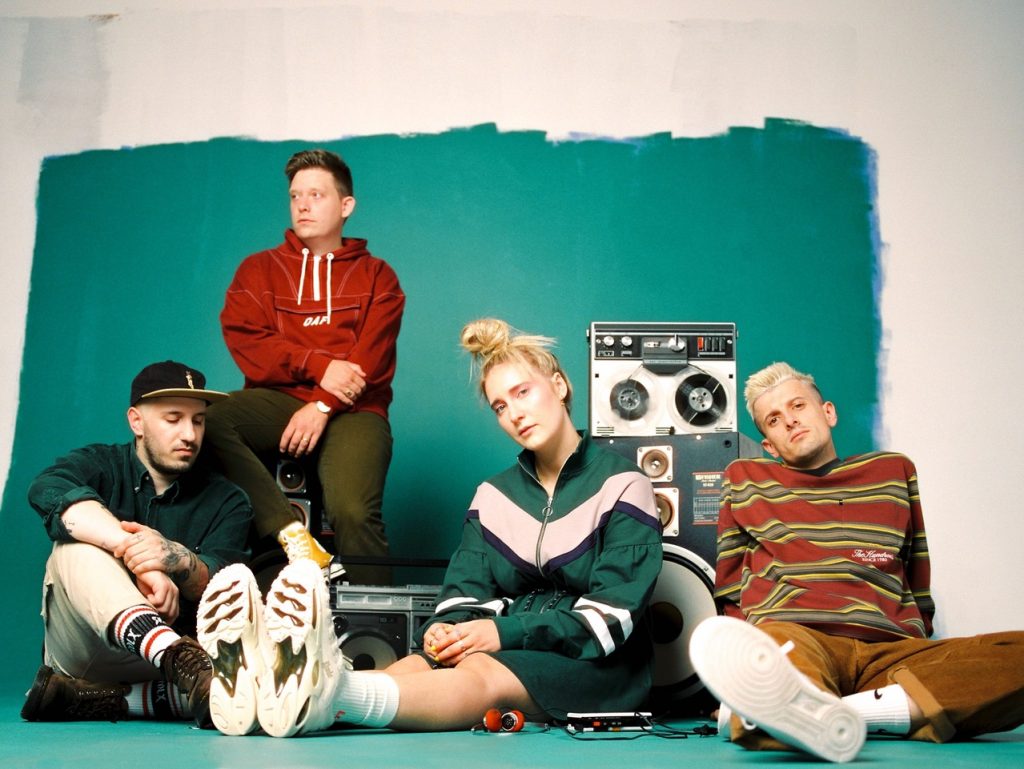
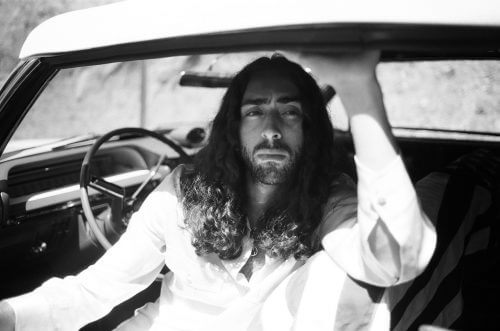
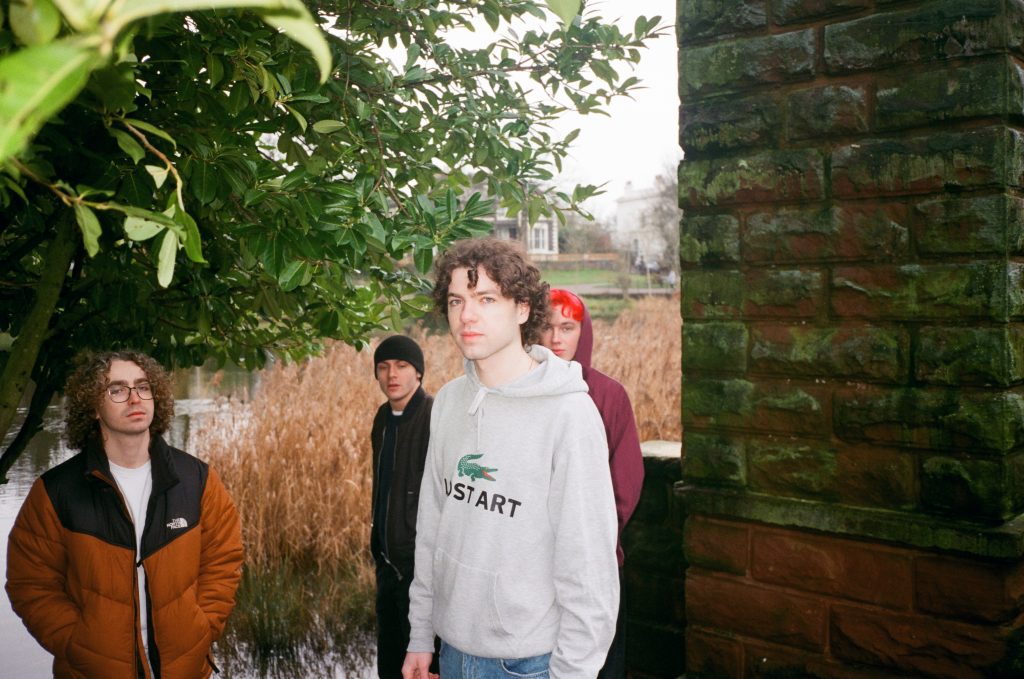
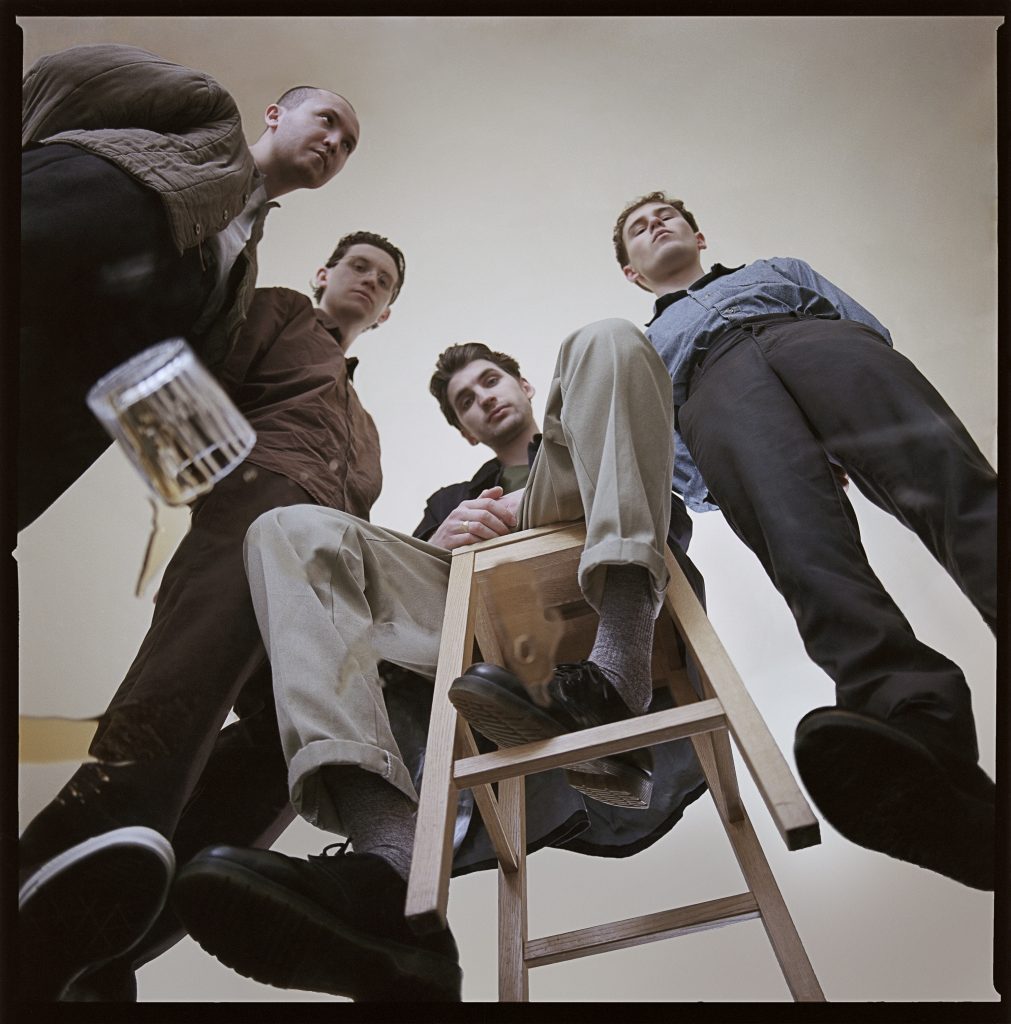
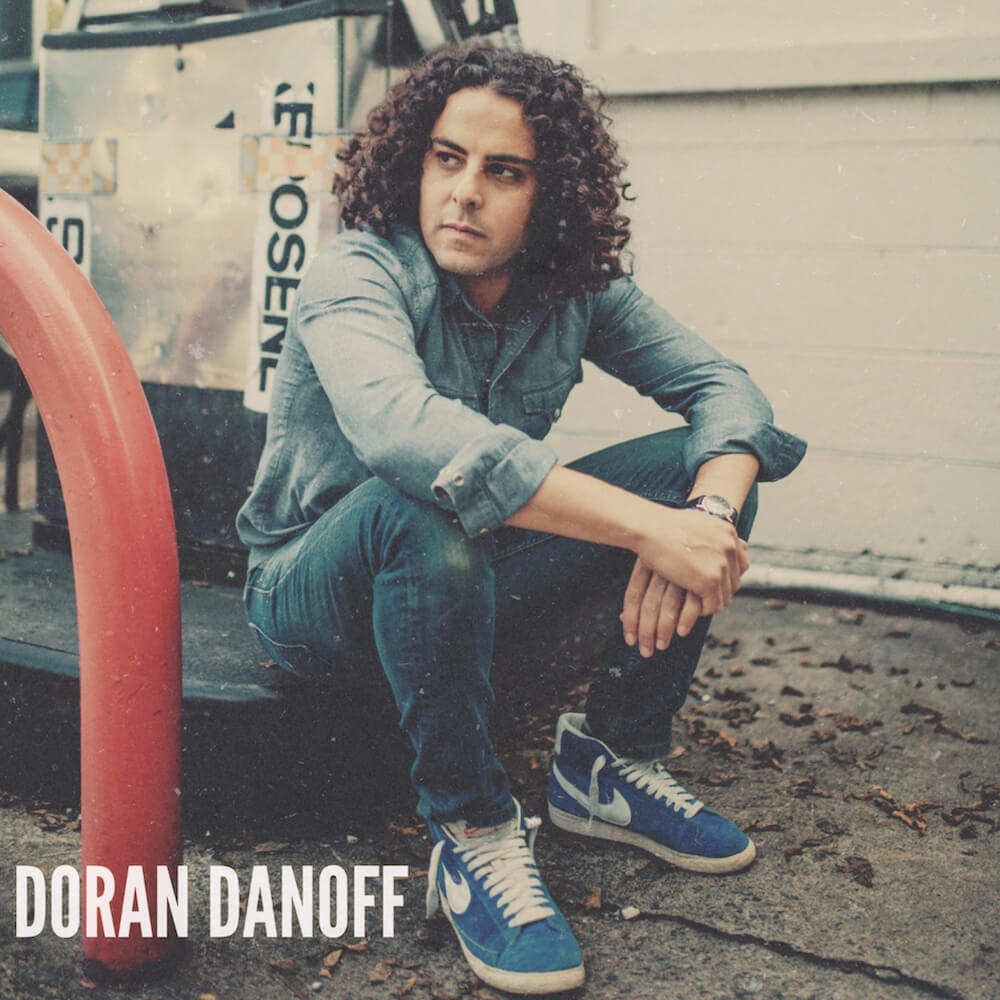
Responses